Ditapis dengan
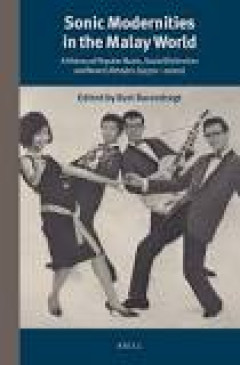
Sonic modernities in the Malay world :a history of popular music, social dist…
Sonic Modernities situates Southeast Asian popular music in specific socio-historical settings, hoping that a focus on popular culture and history may shed light on how some people in a particular part of the world have been witnessing the emergence of all things modern. In its focus on pioneering artists, their creative use of new genres and border crossing technologies it aims at a rewriting …
- Edisi
- -
- ISBN/ISSN
- 9789004261778
- Deskripsi Fisik
- 338 p.; 22 cm.
- Judul Seri
- -
- No. Panggil
- 781.63 SON s
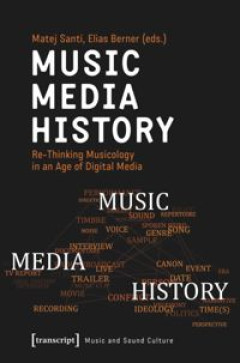
Music - media - history :re-thinking musicology in an age of digital media
Music and sound shape the emotional content of audio-visual media and carry different meanings. This volume considers audio-visual material as a primary source for historiography. By analyzing how the same sounds are used in different media contexts at different times, the contributors intend to challenge the linear perspective of (music) history based on canonic authority. The book discusses A…
- Edisi
- -
- ISBN/ISSN
- 9783839451458
- Deskripsi Fisik
- 297 p.
- Judul Seri
- -
- No. Panggil
- 781 MUS m

Popular music and public diplomacy :transnational and transdisciplinary persp…
In the early years of the Cold War, Western nations increasingly adopted strategies of public diplomacy involving popular music. While the diplomatic use of popular music was initially limited to such genres as jazz, the second half of the 20th century saw a growing presence of various popular genres in diplomatic contexts, including rock, punk, reggae, and hip-hop. This volume illuminates the…
- Edisi
- -
- ISBN/ISSN
- 9783839443583
- Deskripsi Fisik
- 328 p.
- Judul Seri
- -
- No. Panggil
- 306.4842 POP p

Higher education as context for music pedagogy research
"This anthology presents music pedagogical research as a field of integrated reflection that transcends institutional and disciplinary barriers. The anthology aims to reinforce thinking, knowledge development and collaboration in the broad landscape of music pedagogical research and education. The authors are associated with performance music education, pre-service and in-service teacher educat…
- Edisi
- -
- ISBN/ISSN
- 9788202696979
- Deskripsi Fisik
- 392 p.
- Judul Seri
- -
- No. Panggil
- 378 HIG h

Musical composition in the context of globalization :new perspectives on musi…
Since the early transformation of European music practice and theory in the cultural centers of Asia, Latin America, and Africa around 1900, music history has to be conceived globally - a challenge that musicology has hardly faced yet. This book discusses the effects of cultural globalization on processes of composition and distribution of art music in the 20th and 21st centuries. Christian Utz…
- Edisi
- -
- ISBN/ISSN
- 9783839450956
- Deskripsi Fisik
- 527 p.
- Judul Seri
- -
- No. Panggil
- 780.905 UTZ m
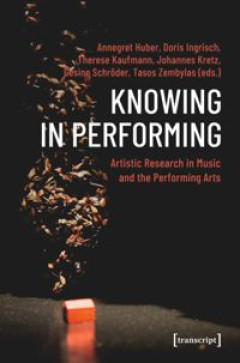
Knowing in performing:artistic research in music and the performing arts
How can performing be transformed into cognition? Knowing in Performing describes dynamic processes of artistic knowledge production in music and the performing arts. Knowing refers to how processual, embodied, and tacit knowledge can be developed from performative practices in music, dance, theatre, and film. By exploring the field of artistic research as a constantly transforming space for pa…
- Edisi
- -
- ISBN/ISSN
- 9780429323058
- Deskripsi Fisik
- 224 p.
- Judul Seri
- -
- No. Panggil
- 790.2 KNO K
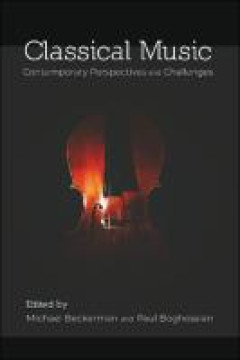
Classical music:contemporary perspectives and challenges
"This kaleidoscopic collection reflects on the multifaceted world of classical music as it advances through the twenty-first century. With insights drawn from leading composers, performers, academics, journalists, and arts administrators, special focus is placed on classical music’s defining traditions, challenges and contemporary scope. Innovative in structure and approach, the volume compri…
- Edisi
- -
- ISBN/ISSN
- 9781800641150
- Deskripsi Fisik
- XXXI, 199 p.
- Judul Seri
- -
- No. Panggil
- 780.903 CLA c
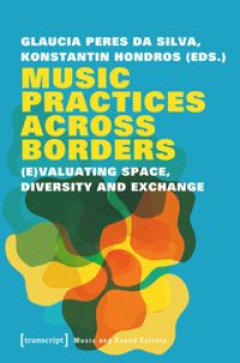
Music practices across borders :(e)valuating space, diversity and exchange
Reconnecting migration studies and the theory of valuation, this collection offers an interdisciplinary approach to the study of transnational music practices. Music is here approached as a practice not confined by audibility - rather, it is "seen" when the YouTube video is clicked, "felt" when the subwoofer vibrates, and "smelled" when the festival crowd dances: practices make music emerge in …
- Edisi
- -
- ISBN/ISSN
- 9783839446676
- Deskripsi Fisik
- 214 p.
- Judul Seri
- -
- No. Panggil
- 780.1 MUS m

The politics of diversity in music education
This open access book examines the political structures and processes that frame and produce understandings of diversity in and through music education. Recent surges in nationalist, fundamentalist, protectionist and separatist tendencies highlight the imperative for music education to extend beyond nominal policy agendas or wholly celebratory diversity discourses. Bringing together high-level …
- Edisi
- -
- ISBN/ISSN
- 9783030656171
- Deskripsi Fisik
- x, 214p. : ill.
- Judul Seri
- -
- No. Panggil
- 780.71 POL p
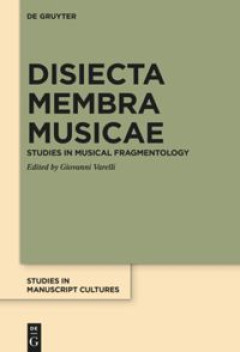
Disiecta membra musicae :studies in musical fragmentology
Although fragments from music manuscripts have occupied a place of considerable importance since the very early days of modern musicology, a collective, up-to-date, and comprehensive discussion of the various techniques and approaches for their study was lacking. On-line resources have also become increasingly crucial for the identification, study, and textual/musical reconstruction of fragment…
- Edisi
- -
- ISBN/ISSN
- 9783110717884
- Deskripsi Fisik
- VI, 398 p.
- Judul Seri
- -
- No. Panggil
- 780.940902 DIS d
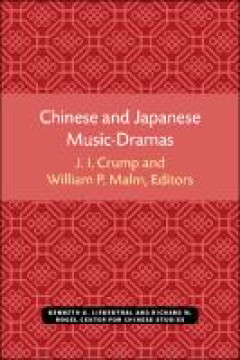
Chinese and Japanese music-dramas
Chinese and Japanese Music-Dramas is the result of a conference on the relations between Chinese and Japanese music-drama held at the University of Michigan, Ann Arbor, on October 1–4, 1971. In addition to the Association for Asian Studies, four U-M departments participated in the conference: the Center for Japanese Studies, the Center for Chinese Studies, the School of Music, and the Speech …
- Edisi
- -
- ISBN/ISSN
- 9780472901371
- Deskripsi Fisik
- VIII, 255 p.
- Judul Seri
- -
- No. Panggil
- 782.10951 CHI c

Yuarn music dramas :studies in prosody and structure and a complete catalogue…
Part One of Yuarn Music Dramas presents a detailed analysis of form and structure in Yuarn music drama, with sections on the act, the suite, the aria, the verse, metrics of repeated graph patterns, parallelism, and the matching of suite and mode. [vii] Part Two presents the first catalogue of arias of its kind to be published in a language other than Chinese. It is a compilation of all of the a…
- Edisi
- -
- ISBN/ISSN
- 9780472901470
- Deskripsi Fisik
- XVI, 376 p
- Judul Seri
- -
- No. Panggil
- 895.12409 JOH y
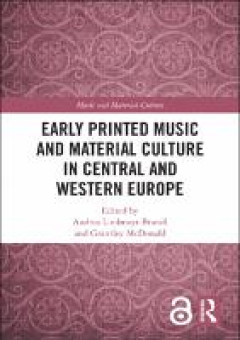
Early printed music and material culture in Central and Western Europe
This book presents a varied and nuanced analysis of the dynamics of the printing, publication, and trade of music in the sixteenth and early seventeenth centuries across Western and Northern Europe. Chapters consider dimensions of music printing in Britain, the Holy Roman Empire, the Netherlands, France, Spain and Italy, showing how this area of inquiry can engage a wide range of cultural, hist…
- Edisi
- -
- ISBN/ISSN
- 9780429342844
- Deskripsi Fisik
- XXI, 333 p.
- Judul Seri
- -
- No. Panggil
- 070.5794094 EAR e

Expanding professionalism in music and higher music education :a changing game
This book addresses the need to rethink the concept and enactment of professionalism in music, and how such concepts underpin professional higher music education. There is an urgent imperative to enable the potential of professional musicians in our contemporary societies to be more fully realised, recognising both intense challenges that are currently threatening some traditional music practic…
- Edisi
- -
- ISBN/ISSN
- 9781003108337
- Deskripsi Fisik
- XXXIII, 148 p.
- Judul Seri
- -
- No. Panggil
- 780.7 EXP e

Music on the move
"Music is a mobile art. When people move to faraway places, whether by choice or by force, they bring their music along. Music creates a meaningful point of contact for individuals and for groups; it can encourage curiosity and foster understanding; and it can preserve a sense of identity and comfort in an unfamiliar or hostile environment. As music crosses cultural, linguistic, and political b…
- Edisi
- -
- ISBN/ISSN
- 9780472901289
- Deskripsi Fisik
- XIII, 308 p
- Judul Seri
- -
- No. Panggil
- 780.9 FOS m
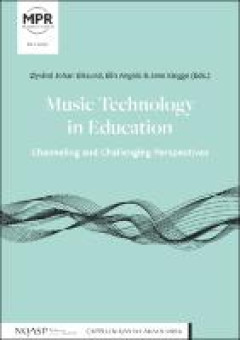
Music technology in education:channeling and challenging perspectives
This anthology presents research projects that examine the intersection between music, technology and education from a variety of perspectives. The contributors are from a range of educational programs within traditional pre-, primary and lower secondary school education, as well as music performance and technology educational programs. Data for the studies stems from primary and lower secondar…
- Edisi
- -
- ISBN/ISSN
- 9788202652258
- Deskripsi Fisik
- 285p.: ill.
- Judul Seri
- -
- No. Panggil
- 780.7 MUS m

Annunciations:sacred music for the twenty-first century
Our contemporary culture is communicating ever-increasingly through the visual, through film, and through music. This makes it ever more urgent for theologians to explore the resources of art for enriching our understanding and experience of the Judeo-Christian tradition. Annunciations: Sacred Music for the Twenty-First Century, edited by George Corbett, answers this need, evaluating the relati…
- Edisi
- -
- ISBN/ISSN
- 9781783747283
- Deskripsi Fisik
- xvi, 376 p. : ill. : ind. ; 24 cm
- Judul Seri
- -
- No. Panggil
- 781.7 COR a
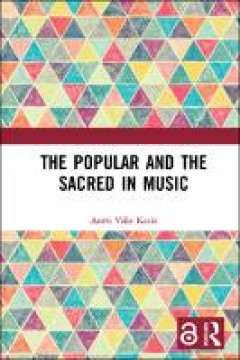
The popular and the sacred in music
Music, as the form of art whose name derives from ancient myths, is often thought of as pure symbolic expression and associated with transcendence. Music is also a universal phenomenon and thus a profound marker of humanity. These features make music a sphere of activity where sacred and popular qualities intersect and amalgamate. In an era characterised by postsecular and postcolonial processe…
- Edisi
- -
- ISBN/ISSN
- 9781003183648
- Deskripsi Fisik
- XII, 198 p.
- Judul Seri
- -
- No. Panggil
- 781.64112 KAR p

We used to wait :music videos and creative literacy
An investigation of music videos as a form, a practice, and a literacy.Music videos were once something broadcast by MTV and received on our TV screens. Today, music videos are searched for, downloaded, and viewed on our computer screens—or produced in our living rooms and uploaded to social media. In We Used to Wait, Rebecca Kinskey examines this shift. She investigates music video as a form…
- Edisi
- -
- ISBN/ISSN
- 9780262526920
- Deskripsi Fisik
- ix, 91 p. : bnw, ill.
- Judul Seri
- -
- No. Panggil
- 791.456578 KIN w

Views on early music as representation :invitations, congruity, performance
Early music performance in its broadest capacity presents a compelling case of being something in the present that is representing, presenting, enacting, re-enacting, living and re-living, concretising and fantasizing a historical past. It is both what it is and something entirely other. Inspiring countless efforts to come to terms with its nature, one way of approaching the act of conveying or…
- Edisi
- -
- ISBN/ISSN
- 9788202755379
- Deskripsi Fisik
- 261 p.
- Judul Seri
- -
- No. Panggil
- 780.72 VIE v
 Karya Umum
Karya Umum  Filsafat
Filsafat  Agama
Agama  Ilmu-ilmu Sosial
Ilmu-ilmu Sosial  Bahasa
Bahasa  Ilmu-ilmu Murni
Ilmu-ilmu Murni  Ilmu-ilmu Terapan
Ilmu-ilmu Terapan  Kesenian, Hiburan, dan Olahraga
Kesenian, Hiburan, dan Olahraga  Kesusastraan
Kesusastraan  Geografi dan Sejarah
Geografi dan Sejarah